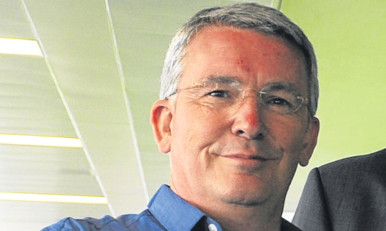YoYo Games of Dundee has been bought by online gaming and casinos software company Playtech for a price which will rise to more than £14 million.
The main transaction is for £10.66m, but an earn-out consideration for reaching certain business targets and retention plan is expected to add a further £3.41m.
The deal announced yesterday allows the Isle of Man-based company to strengthen its presence in the casual games sector, which is worth $25bn a year and is predicted to rise to $40bn by 2017.
YoYo offers the mobile-driven cross-platform casual game development Game Maker: Studio (GMS) that allows developers to create games using a single programming code and publish them across a number of platforms.
Products created using GMS have been downloaded more than five million times on platforms such as iOS, Android, PlayStation, Xbox and also Windows 8. More than 750,000 registered developers currently use the platform on a free basis, paying extra for additional services and solutions.
In casual gaming Playtech already develops products via Plamee, an internal games development team established early last year, and now employs more than 120 developers.
Playtech has a three-pronged strategy to penetrate the sector, combining Plamee’s proprietary games with publishing in-house and third-party games, and YoYo’s casual gaming technology.
The company’s directors believe the continued development of the GMS technology will enable it to expand the number of products being created using the solution.
A spokesperson for Playtech said the YoYo team of about 50 employees would be remaining in Dundee, and added: “Historically we have always kept our acquired teams in situ because it is the talented people that we are acquiring.
“Playtech has offices in 13 countries, and in the UK we have teams in London, Ipswich, Manchester and Staffordshire.
“The YoYo acquisition represents Playtech’s first acquisition into the casual gaming space.
“This has been a key strategic area for us, and the YoYo acquisition will complement our own existing Plamee business well.”
YoYo Games was formed in 2007 by Mark Overmars and Sandy Duncan, the former vice-president of Xbox Europe, to support the development of GameMaker and to build a community for developers and casual gamers who could upload their games to the website.
In 2010 the company opened an office in Abertay University with two team members.
It moved into systems development, software engineering, sales and customer service areas, and two years ago it moved to new office space in Dundee One on West Victoria Dock Road.
Last year YoYo secured a major strategic partnership with the Japanese entertainment giant Sony, which extended its GameMaker: Studio support to Sony’s hand-held PlayStation Vita device, the PlayStation 3 console and new generation PlayStation 4.
About £3.2m of the Playtech basic transaction price is to be held back for up to three years to provide security against possible claims.
